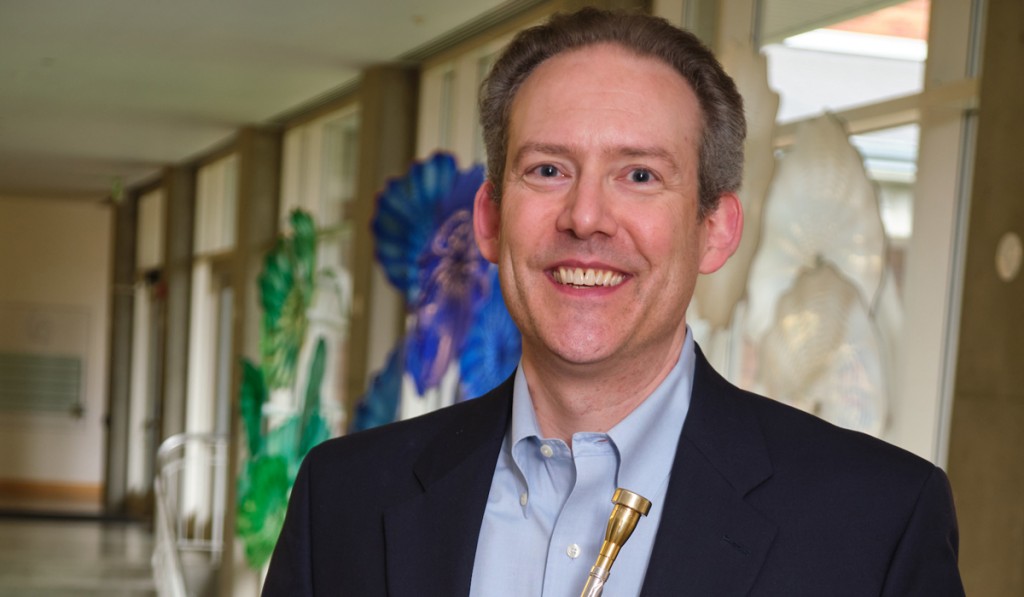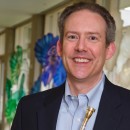Page 5 • (467 results in 0.039 seconds)
-

Professor of Music - Trumpet; Coordinator of Wind, Brass, and Percussion Studies | Music | lymanzt@plu.edu | 253-535-7612 | Zachary Lyman is Professor of Music at Pacific Lutheran University (PLU), where he teaches trumpet, music theory, directs the trumpet ensemble, coaches chamber music, and performs with the Lyric Brass Quintet.
Zachary Lyman Professor of Music - Trumpet; Coordinator of Wind, Brass, and Percussion Studies Phone: 253-535-7612 Email: lymanzt@plu.edu Office Location: Mary Baker Russell Music Center - 113 Office Hours: (On Campus) Mon - Fri: By Appointment Website: https://www.plu.edu/trumpet Professional Biography Additional Titles/Roles Director of the PLU Trumpet Ensemble Music Theory and Analysis II and III Education D.M.A., Trumpet Performance and Pedagogy, The University of Iowa, 2007 M.M. with
Office HoursMon - Fri: - -
The Oregon Center for Electrochemistry’s masters-level internship program attracts chemistry, physics, biology, and engineering students and provide nationally unique training including rigorous foundational electrochemical theory, team- and inquiry-based laboratory work, numerical simulation and engineering of electrochemical systems, and experience tackling industry-sponsored, team research projects. Concepts…
UO Masters’ Internship program in Electrochemistry Posted by: nicolacs / November 18, 2021 November 18, 2021 The Oregon Center for Electrochemistry’s masters-level internship program attracts chemistry, physics, biology, and engineering students and provide nationally unique training including rigorous foundational electrochemical theory, team- and inquiry-based laboratory work, numerical simulation and engineering of electrochemical systems, and experience tackling industry-sponsored, team
-
Using Keywords to Reflect Writing Pedagogy Writing-related words and references to a writing handbook highlighted on a syllabus help students recognize the writing and learning skills the course
research, evaluating sources, integrating source materials into their own writing, and attribution of sources through the use of a style guide. Below are suggestions for sequencing assignments: Use readings to help generate ideas, as models, and as resources for the vocabulary and tools of the larger conversation; you might sequence readings to move from expressive and personal pieces to analysis essays to argumentative and synthesizing articles. Sequence assignments to build on rhetorical strategies
-

Professor of Music - Trumpet; Coordinator of Wind, Brass, and Percussion Studies | School of Music, Theatre & Dance | lymanzt@plu.edu | 253-535-7612 | Zachary Lyman is Professor of Music at Pacific Lutheran University (PLU), where he teaches trumpet, music theory, directs the trumpet ensemble, coaches chamber music, and performs with the Lyric Brass Quintet.
Zachary Lyman Professor of Music - Trumpet; Coordinator of Wind, Brass, and Percussion Studies Phone: 253-535-7612 Email: lymanzt@plu.edu Office Location: Mary Baker Russell Music Center - 113 Office Hours: (On Campus) Mon - Fri: By Appointment Website: https://www.plu.edu/trumpet Professional Biography Additional Titles/Roles Director of the PLU Trumpet Ensemble Music Theory and Analysis II and III Education D.M.A., Trumpet Performance and Pedagogy, The University of Iowa, 2007 M.M. with
Office HoursMon - Fri: - -

Life Under Drones is the first of its kind: a gathering of leaders in scholarly, military, artistic, and technology industries to assess the influence of drones on contemporary life. Taking place September 18-19, 2019, Life Under Drones will feature keynotes presentations, panels, art installations, workshops,…
across the U.S. and beyond create drone parks specifically for the recreational use of drones, and as drones become an increasingly popular gift idea, evoking the rhetorical framing of “drones as toys.” On the other hand, its use in the military and intelligence communities for both ISR (intelligence, surveillance, and reconnaissance) and targeted strikes engenders a number of responses ranging from enthusiasm to outrage to ethical unease in both the military community and the general public. However
-
Major in Communication 40 semester hours, plus a minor Concentrations Students in this program select a concentration in either Film & Media Studies or Strategic Communication.
): ARTD 101: Drawing 1 (4) ARTD 102: 2D Design/Color Theory (4) ARTD 201: Drawing 2: Figure Drawing (4) ARTD 202: 3D Design (4) Technique Courses (24) Go to www.plu.edu/comm-media-designarts/documents to view specific courses fulfilling requirements. Two-dimensional courses (8) Three-dimensional courses (8) Photography course (4) Technology course (4) Understanding Art/Culture Courses (12) ARTD 180: History of Western Art I (4) ARTD 181: History of Western Art II (4) Upper-division Art History (4
-
The assignment helps writers imagine a sense of purpose for writing. When people write beyond school, their writing is driven by a need to communicate in order to evoke a specific response or to
brainstorming techniques (invention heuristics) for writers to help them generate ideas. Related to invention is reading. Precede writing assignments with readings that provide the rhetorical and analytical tools and vocabulary of the larger conversation; select pieces of writing (both student and professional) that can also serve as models. Emphasize the reading/writing connection: the notion that to be a good writer, one must be an avid reader. You can further cement this link by referencing the readings
-
Program length: 24 - 27 months, typically 6-7 terms Credit hours: 48 - 50 semester credits (depending if students choose optional additional one semester of practicum)
) Theory IMFTH 511 (4) Systemic Assessment Fall and Spring of second year, and optional semester:Fall/Spring/Summer/Fall: Classes typically one day a week, 11:00am-6:00pm; internship continues at on-campus clinic, with the addition of internship at off-campus clinic, 20-25 hours per week. Fall year 2: Option A trackFall year 2: Option B track MFTH 510 (4) Human Sexuality, Sex, & Couples Therapy MFTH 521 (2) Practicum II MFTH 522 (2) Theory IIMFTH 510 (4) Human Sexuality, Sex, & Couples Therapy MFTH 519
-
Dr. Amy Young, professor of communication, explains at this year’s TEDxTacoma What comes to mind when you think of the word “intellectual”? If you type “intellectuals are” into Google, the top three responses are “stupid,” “useless,” and “annoying.” Dr. Amy Young, professor of communication, argues…
Saturday, March 21 at 3pm. “I would argue, we seem irrelevant because we are lousy at talking about what it is we do, what it is we study, and why it matters,” Young says. Young researched this phenomenon in part of her new book, Prophets, Gurus & Pundits: Rhetorical Styles & Public Engagement (Southern Illinois University Press, 2014) where she describes the following. Until the early part of the 20th century experts, or “public intellectuals,” could translate expertise for audiences outside of their
-
Originally published in 2016 But, for the time being, here we all are, Back in the moderate Aristotelian city Of darning and the Eight-Fifteen, where Euclid’s geometry And Newton’s mechanics would account for our experience, And the kitchen table exists because I scrub it. It…
etymologies, such as the Greek roots of “scholar.” Ciardi also wrote memorable poetry, mining the ancient power of words to show that some things human never change. For instance, these lines from his “Credibility,” Who could believe an ant in theory? a giraffe in blueprint? Ten thousand doctors of what’s possible could reason half the jungle out of being. I speak of love, and something more, to say we are the thing that proves itself not against reason, but impossibly true, and therefore to teach reason
Do you have any feedback for us? If so, feel free to use our Feedback Form.


